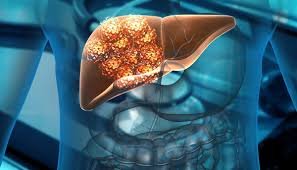Akeso Doses First Patient in Global Phase II Registrational Trial of Cadonilimab Plus Lenvatinib for IO-Pretreated Advanced HCC
16 September 2025 | Tuesday | News

Image Source : Public Domain
Akeso, Inc. (9926.HK) ("Akeso" or the "Company") announced that the first patient has been dosed in its global, multicenter, randomized Phase II registrational trial (COMPASSION-36/AK104-225). The trial will evaluate cadonilimab, Akeso's first-in-class PD-1/CTLA-4 bispecific antibody, in combination with lenvatinib versus lenvatinib alone for the treatment of advanced hepatocellular carcinoma (HCC) in patients previously treated with atezolizumab (a PD-L1 inhibitor) and bevacizumab.
COMPASSION-36 is the first global registrational Phase III trial of cadonilimab, currently ongoing in China, the U.S. and Europe. Its advancement represents a significant milestone in the global development and registration of cadonilimab, reflecting Akeso's commitment to advancing cancer immunotherapy and addressing the limited survival benefits associated with single-target therapies.
Additional global multicenter registrational/Phase III clinical trials for cadonilimab are currently being prepared. Going forward, Akeso will continue to pursue a dual strategy of in-house development and open collaboration, leveraging high-quality global resources to accelerate the internationalization of cadonilimab and offer patients worldwide improved and more accessible treatment options.
Currently, immune checkpoint inhibitor (IO) combination therapies have become the standard first-line treatment for various advanced malignancies. However, for patients worldwide whose disease progresses after IO combination therapy, there is a lack of effective second-line treatment options. The very limited second-line treatment options for advanced malignancies drive the critical need to explore new therapeutic strategies. Cadonilimab-based combination therapies have shown substantial potential in overcoming IO resistance across multiple tumor types.
Hepatocellular carcinoma (HCC) is one of the most prevalent malignancies worldwide, with approximately 865,000 new cases of liver cancer reported globally in 2022. The combination of atezolizumab and bevacizumab (A+T regimen) is the standard first-line therapy for advanced HCC, as recommended by the NCCN guidelines. However, for patients whose disease progresses after first-line A+T treatment, there is currently no FDA-approved second-line therapy available in the U.S., and also no approved treatment options from the NMPA in China. This creates a significant unmet need in the clinical management of these patients.
The potential of cadonilimab for the treatment of HCC has been validated in multiple studies. The promising data from the combination of cadonilimab and pulocimab (anti-VEGFR-2) in treating IO-resistant lung cancer was recently presented as an oral presentation at WCLC 2025, generating widespread attention within the industry. At the 2023 ESMO Asia Congress, a study was presented demonstrating that cadonilimab, combined with FOLFOX-HAIC as neoadjuvant therapy, achieved a 100% disease control rate (DCR) in patients with resectable multinodular HCC. Data presented at the 2023 ESMO Congress revealed that the combination of cadonilimab and lenvatinib as first-line treatment for advanced HCC shows superior antitumor activity.
Akeso's exploration of combination therapies with cadonilimab in the treatment of HCC offers a broad and effective approach to disease management. These combinations address both early and advanced stages of HCC and provide promising therapeutic options for a wide range of patients.
In addition to the international multicenter Phase II registrational study COMPASSION-36, patient enrollment for the Phase III clinical trial of cadonilimab as adjuvant therapy for high-risk recurrence following curative surgery for HCC has been completed. Furthermore, a Phase III registrational study of cadonilimab combined with lenvatinib and transarterial chemoembolization (TACE) for the treatment of intermediate to advanced unresectable HCC is currently ongoing.
Most Read
- How Does GLP-1 Work?
- Innovations In Magnetic Resonance Imaging Introduced By United Imaging
- Management of Relapsed/Refractory Multiple Myeloma
- 2025 Drug Approvals, Decoded: What Every Biopharma Leader Needs to Know
- BioPharma Manufacturing Resilience: Lessons From Capacity Expansion and Supply Chain Resets from 2025
- APAC Biopharma Review 2025: Innovation, Investment, and Influence on the Global Stage
- Top 25 Biotech Innovations Redefining Health And Planet In 2025
- The New AI Gold Rush: Western Pharma’s Billion-Dollar Bet on Chinese Biotech
- Single-Use Systems Are Rewiring Biopharma Manufacturing
- The State of Biotech and Life Science Jobs in Asia Pacific – 2025
- Asia-Pacific Leads the Charge: Latest Global BioSupplier Technologies of 2025
- Invisible Threats, Visible Risks: How the Nitrosamine Crisis Reshaped Asia’s Pharmaceutical Quality Landscape
Bio Jobs
- Sanofi Turns The Page As Belén Garijo Steps In And Paul Hudson Steps Out
- Global Survey Reveals Nearly 40% of Employees Facing Fertility Challenges Consider Leaving Their Jobs
- BioMed X and AbbVie Begin Global Search for Bold Neuroscience Talent To Decode the Biology of Anhedonia
- Thermo Fisher Expands Bengaluru R&D Centre to Advance Antibody Innovation and Strengthen India’s Life Sciences Ecosystem
- Accord Plasma (Intas Group) Acquires Prothya Biosolutions to Expand Global Plasma Capabilities
- ACG Announces $200 Million Investment to Establish First U.S. Capsule Manufacturing Facility in Atlanta
- AstraZeneca Invests $4.5 Billion to Build Advanced Manufacturing Facility in Virginia, Expanding U.S. Medicine Production
News











